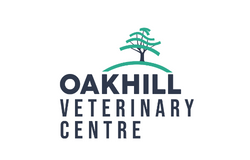Squamous ulceration and glandular ulceration are considered separate disease entities and whilst the risk factors for squamous ulceration are well publicised, further research is required for glandular ulcerative disease. By knowing the risk factors for ulcerative disease, we can endeavour to develop prevention strategies. In some horses, it is impossible to ascertain the trigger factor but ongoing care with diet, management and reduction in stress are of paramount importance regardless.
1. Diet
As we will have previously discussed, access to fibre, little and often, is very important for the prevention of gastric ulceration. Horses should have access to grazing, ideally with companions, and whilst stabled, receive access to hay/haylage. Many people interpret this as a licence to over feed horses and this is certainly not the case. In those horses that are overweight, the recommended quantity of hay should be divided out over a 24-hour period, ideally as 4-6 feeds and not given as one feed only. Hay may be soaked and double netted to slow ingestion speed.
If feeding bucket feeds, select low starch/sugar feeds. A number of suitable feeds are available and we are more than happy to discuss this with you on an individual basis.
Corn oil has varying scientific evidence and as such goes ‘in and out’ of fashion but may reduce gastric acidity. But remember, corn oil is calorific so may not be suitable if your horse is carrying too much weight as it will result in further weight gain.
2. Water restriction & over supplementation with electrolytes
Are also considered risk factors for the development of ulceration. Ad lib water should be provided at all times and if using electrolytes, these should be used judiciously and added to feed.
3. Intense Exercise
Intense exercise is another risk factor for squamous ulceration. As exercise intensity increases, so does the incidence of squamous ulceration. Remember to feed a handful of hay/alfalfa 15 minutes before work to increase the fibrous matt in your horse’s stomach and in turn, reduce acid splash.
4. Stress
Stress is inevitably a contributing factor to gastric ulceration. Horses are herd animals and as such should have companions and freedom to display natural behaviors including access to turn out alongside their companions.
Stable enrichment should be considered for periods your horse is stabled- stable mirrors, treat balls etc. A number of commercial calmers are also available with varying degrees of success in individual patients.
5. Supplements
Lack conclusive scientific evidence but a couple of new products have been released as of late. It is too early to comment on our experiences just yet but watch this space!
